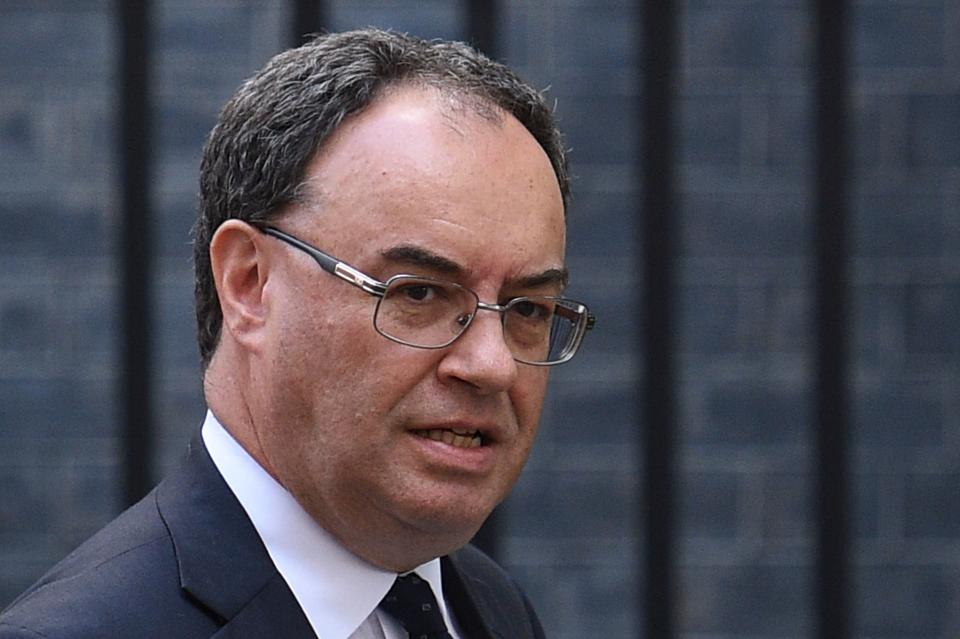Mini-bond ad ban too little, too late: 'I just want my money back'

Investors who lost tens of thousands of pounds investing in mini-bond schemes are angry and unimpressed with an advertising ban, saying the UK’s financial regulator is not doing enough to tackle the runaway sector.
The Financial Conduct Authority (FCA) on Tuesday announced a ban on adverts for certain mini-bonds targeted at retail investors. It follows a series of high-profile failures that left small-time investors with losses of over £1bn ($1.2bn) by one estimates.
“It’s closing the stable door after the horse has bolted, in my view,” Amanda Cunningham, 50, a mini-bond investor from Lancashire, told Yahoo Finance UK.
“The FCA, to be quite honest, should have taken action long before now. It’s been going on for so long. There are other companies now that are basically Ponzi schemes going the same way as LC&F. They’re all folding.”
Cunningham lost £22,000 investing in London Capital and Finance (LCF), the biggest scandal yet to hit the sector. LCF raised £237m selling mini-bonds to more than 11,000 small-time investors. The company collapsed in January and administrators have warned investors could recover as little as 20% of their money. Questions have been raised over the use of funds and the Serious Fraud Office is investigating.
LCF is just the highest profile failure in a sector that has seen thousands of ordinary people — many of them pensioners — lose millions of pounds. The sector has raised serious questions about the FCA’s ability to protect everyday investors, with victims calling for sweeping reforms.
A spokesperson for the FCA told Yahoo Finance UK it had “taken a substantial range of actions over the past year” and said: “The issuance of mini-bonds is generally not a regulated activity and we are taking action where we have the power to in order to protect customers.”
‘Catalogue of failures’
Mini-bonds are unregulated, high-interest, high-risk debt products — a bond paying 7% interest over five years, for example.
Cheap internet advertising, low interest rates, and pension freedoms have led to a boom in mini-bonds targeted at ordinary people, rather than investment professionals who would typically buy bonds.
While the investments offer eye-catching returns, the companies that issue them run a high risk of going bust and leaving investors with nothing. BondReview.co.uk, a blog that follows the space, estimated in August that almost £1bn had been lost through bust mini-bond schemes in 2019 alone.
The FCA said Tuesday that the average investor puts £25,000 into mini-bonds, meaning as many as 40,000 people may have been affected by the scandal so far.

Those who have lost money criticised the regulator on Tuesday for the failing to act until now.
“For the industry itself, [the advertising ban] is a step in the right direction but the first written warning went into the FCA from independent financial advisors in 2015,” said Andrea Hall, a spokesperson for a group of LCF Bondholders on Twitter. “It demonstrates just how much pressure needs to be put on FCA before they will act.”
READ MORE: Government 'unsympathetic' to major bust bond scheme investors
Thomas Donegan, a partner at law firm Shearman & Sterling who is acting on behalf of LCF bondholders, said the advertising ban was “a good idea, but it doesn’t get the FCA off the hook for the catalogue of failure that stands behind this.
“They’re now intervening to take emergency measures to close down a market which is defrauding investors,” he told Yahoo Finance UK. “But it’s been going on for a few years under their watch and they didn’t really do anything about it before that.”
‘As much use as a chocolate fire guard’
Many investors feel sorely let down by the FCA, which they believe should have done more to protect them and has been slow to respond after problems came to light.
“I wouldn’t trust the FCA now if they stood on a stack of bibles and said: we’re totally 100% honest,” June Underwood, 72, told Yahoo Finance UK. She lost £20,000 investing in LCF.
“The only way I know what’s going on with all of this is the Facebook page with the creditor’s committee. Without them, we wouldn’t know anything.”
FCA chief executive Andrew Bailey said Tuesday that the advertising ban complimented “substantial actions” the regulator had taken in the mini-bond sector.
The FCA said it has investigated over 250 cases related to mini-bonds and been in contact with both the Department for Culture, Media, and Sport and Google about the issue.
A spokesperson said: “We have taken a substantial range of actions over the past year including looking at where firms may have been operating without the right authorisation and assessing cases where financial promotions may not have been following the rules.
“These are designed to tackle risks for investors but we believe that this further step is needed, particularly ahead of ISA season.”
READ MORE: Watchdog criticises Google over high-risk bond ads: 'We want to see significant progress'
Cunningham told Yahoo Finance UK: “They’re as much use as a chocolate fire guard. There’s no point having a regulator that’s not going to regulate.”
She called for a complete overhaul of the watchdog. The FCA replaced the ‘failed’ FSA in 2013 in the wake of the financial crisis. Cunningham suggested the FCA had now reached a similar point as its predecessor, with a loss of credibility.
‘I don’t know how they’re getting away with it’
Donegan predicted the advertising ban would be the start of a crackdown by the FCA as it seeks to make amends for its slow response.
“They’re clearly taking the issue seriously now and this is probably the first of a few measures we’ll see them taking,” he told Yahoo Finance UK. “I imagine they’ll also start doing some things in the enforcement space before too long as well.”
Bailey said Tuesday that the advertising ban would “enable us to further consumer protection.” But the FCA admitted Tuesday that there are also “growing incidence of promotions which are frauds or scams and involve no attempt to meet financial promotion rules.
“The marketing ban does not apply to such frauds and scams because they are illegal in any event.”

The term ‘mini-bond’ has not been legally defined and the products themselves remain unregulated, making a crackdown challenging. The FCA provides a definition of mini-bonds but it is relatively loose.
In cases like LCF, jargon and a web of overlapping regulation were exploited to make the investments seem safer than they really are.
READ MORE: Savers targeted with ads on Google for 'bonds' that put all their money at risk
“I never bought any mini-bonds,” Underwood said.
“According to my statements that I’ve received from LCF, mine was an income bond and an ISA. However, once all this blew-up, I checked by statement and it had been changed from income bond to mini-bond and it was really, really highlighted in red.”
“My argument is I never bought a mini-bond,” Underwood said. “I know and I can prove that they changed it to a mini-bond.”
‘It’s everything I had’
What investors really want from the FCA is their money back.
“It’s easy to say, right, we’re going to ban mini-bonds [ads] — that’s not going to give people their money back,” Cunningham said. “People have lost their lifesavings and in some cases their livelihoods.”
Former judge Dame Elizabeth Gloster is carrying out an independent investigation into the collapse of LCF and there are legal wranglings over whether investors are eligible for compensations under the Financial Services Compensation Scheme (FSCS).
Investors who lost £750m in the myriad of other, smaller mini-bond schemes have yet to get an inquiry of their own.
An FCA spokesperson said: “There is an independent investigation looking at this FCA’s regulation of London Capital & Finance following the firm’s failure. The matter of recovering money for investors is one for the Administrators and we are providing support to them.”
While all this goes on, thousands of people have had their lives turned upside. June Underwood is a typical case.
“This isn’t the life I thought I’d have,” she said. “I thought I was doing the sensible thing by investing all this money and making myself safe.”
A former new house salesperson, Underwood was approaching retirement when she decided to invest in LCF. She has since developed lupus, an autoimmune disease, and it has left her unable to work. She blames the illness on the stress of LCF
READ MORE: Retired doctor who lost £50,000 on risky bonds calls for rule change
“At some point I’m going to have to go on benefits and I don’t want to,” Underwood told Yahoo Finance UK. “I really don’t want to.”
Fighting back tears over the phone, she said: “I’m standing at the window now and I’m looking at the house I used to own.
“It broke my heart losing my home because I’d had that house since 1987. Never in my life missed a month’s mortgage, ever. I knew if I missed a mortgage payment they’d take it away from me and I couldn’t have stood that. So I sold my house and I moved opposite into rented.
“I just want my money back. Out of the £237m they stole from us, £20,000 isn’t a lot of money. But it’s my lifeline, it’s everything I had.”
————
Oscar Williams-Grut is Yahoo Finance UK’s City correspondent. He covers banking, fintech, and finance for Yahoo Finance UK. Follow him on Twitter at @OscarWGrut.
Read more:

